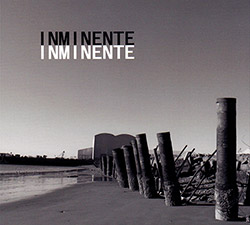
A quintet of audio explorers that includes Otomo Yoshihide, recording in NY for 11 abstract non-idiomatic improvisations using electronics, drums, turntables, 4 electric guitars, double bass, analog synth, and effects to create identifiable and aberrant sound sources, elements used for reverie or building into unlikely yet cogent grooves; fascinating.
Out of Stock
Quantity in Basket: None
Log In to use our Wish List
Shipping Weight: 3.00 units
Sample The Album:
Amanda Irarrazabal-double bass, synthesizer
Nicolas Rios-drums
Lorenzo Roman-electric guitar
Ramiro Molina-electric guitar, effects
Otomo Yoshihide-electric guitar, turntables
Click an artist name above to see in-stock items for that artist.
UPC: 748079797437
Label: FMR
Catalog ID: FMRCD523-1218
Squidco Product Code: 27356
Format: CD
Condition: New
Released: 2018
Country: UK
Packaging: Digipack - 3 panel
Recorded at Altarocka studios, in Santiago, Chile, on November 13th, 2017, by Nicolas Rios.
"The musicians could have simply run the bath water, we wouldn't know there was anything else, not these architectures carved out of the mountain, these spaces opening before our ears. A hard, mineral clarity pulls light into the malleable mass of sound that lies dormant around us, as if to reveal the hidden face of the sentient world we inhabit; there to be played, brought forth. We will not quite recognize what we are called to witness, just that it is an alert music, ever mindful where the mining goes. But how do the musicians know how to proceed, to trust that together they will manage to find a kind of harmony, a collective intuition in their noise harvesting? We're not talking song and dance, or some other script that tells everyone where to follow. It may be that only our uncertainties light the way here.
The materiality of this music makes for a marvelous garden. As if objects and environments stood in for elaborate lattices of notation. But then, there are hardly notes. We hear the metal and the wire and the coil of the electric guitar strings, how they ring and glisten and burn, sometimes like horns screeching; the bowed and plucked voicing of the wood in the bass, the quickness of sticks, the scratches on the spinning record, and all the fine frenzy and spark of electronic instruments. Such variable densities, and such drama at every turn. Even the shapes of the pieces unfolding surprise us, we weren't aware the landscape could change so. What is about to happen is already happening, and our ability to see will soon catch up."-Jason Weiss, from the liner notes
Artist Biographies
• Show Bio for Amanda Irarrazabal "Amanda Irarrazabal was born in Santiago de Chile in 1982, currently living in Buenos Aires, Argentina; is a bassist, bassist, singer, improviser and composer. in 2002 he began his musical career, going through different genres (classical, experimental, jazz, rock, tango and Latin American music); and choosing free improvisation and original music as what most identifies her. has been part of projects such as Inciertario, Jorge Campos Grupo, Cardias, Arre!, Dactilar, Cátodo Dúo, De Escamas, Eriza, Entre Otros. among others." ^ Hide Bio for Amanda Irarrazabal • Show Bio for Nicolas Rios "Nicolás Ríos has been one of the most vital jazz drummers of the zero-zero generation, with proposals ranging from post-bop to a marked avant-garde, and with formats from acoustic chamber music to experiments with electronics. He is a composer but above all free improviser, aspects that are exposed in works such as Fuera de foco (2005), with which he began his journey within jazz. He is considered a soloist close to the Andy Baeza of the 2000s, and is part of a wave of drummers who in those days explored experimental music. like Julio Denis, Matías Mardones and Hugo Manuschevich. Ríos studied learned composition at the University of Chile and from this location he composed a considerable amount of chamber works. Ríos initially acted in various experimental music ensembles, with generational musicians such as flutist Marcelo Maira, altoist Sebastián Zúñiga, guitarist Armando Ulloa, or his brother bass player Rodrigo Ríos. In 2005 he replaced Andy Baeza in the last appearances of the free trio Turangalila, episode that connected him with the guitarist Ramiro Molina, in whose subsequent trios of free improvisation he came to work more open and progressive languages for a polyvalent battery. Involved directly with jazz, he was the sideman of the singer Rodrigo González and the saxophonist of the old guard Mickey Mardones (on the album Da gracias a la vida, 2006). He also joined the tango-jazz quintet of pianist Rodrigo Ratier (in Neurotango, 2008) and the quintet of guitarist Sebastián Prado ( Patafísica, 2009). His first album is Fuera de foco (2005), with works written for a chamber quintet of unusual instrumentation within jazz: baritone sax ( Alejandro Rivas ), bass clarinet ( Alfredo Abarzúa ) and vibraphone ( Carlos Vera Jr ). In 2010 he recorded the album Armánico, in coliderazo with Armando Ulloa, and in 2015 he joined the sextet of the singer Arlette Jequier." ^ Hide Bio for Nicolas Rios • Show Bio for Lorenzo Roman Lorenzo Roman Brugnoli is a Chilean guitarist, composer, improviser, music producer and audio editor. ^ Hide Bio for Lorenzo Roman • Show Bio for Ramiro Molina "Few Chilean guitarists demonstrated such commitment to experimental music as Ramiro Molina. Soloist, composer, arranger and magnificent improviser, he started playing as one of the key names in the jazz exploration, in the mid-90s, in charge of two avant-garde ensembles: Phaedo (1996) and Turangalila (2001). Like most of the Chilean electric guitarists, Molina began in music with some names of progressive rock as horizon, but already to the 18 years, in 1984, was integrated to a grouping that would mark its definitive course: Hamilton Big Band. Under the orders of the Ecuadorian saxophonist Hamilton Vela, and with many of the most prestigious jazz players of the time in the star lineup, Molina began his training in the rudiments of swing. Since 1996 he led the experimental group Phaedo, for which he wrote music for quartet (guitar, bass, drums and trumpet). His compositions developed the concept of "abstract jazz", a very personal view of the author on the transfer of the pictorial principles proposed by abstract painters to sound structures. Later, Molina worked as leader of a series of jazz trios with music written especially not only for these formats but for the characteristics of each of the soloists involved. In this sense, Molina operated more as a learned composer than as a jazz player. In its ensambles it used contrabajistas like Alejandra Santa Cruz, Cristián Espiñeira and Daniel Navarrete, and to drummers like Andy Baeza, Felipe Candia and Nicolás Rivers. In 2000 the guitarist expanded the original format of the quartet Phaedo, to sextet. This new band was ultimately transformed into his main project as a soloist. Molina then included a rhythm section of jazz and a first line of learned instruments (trumpet, flute and bassoon), where noted the phagestologist Nelson Vinot. Free and total: the impromptu speech In 2005, and after closing this project of assembly, Molina happened to be one of the impellers of the group of free improvisation Tiempo Real and with Navarrete (in addition to Rivers ) in 2008 launched its manifesto through the experimental disc Schfrtk. A year later, he led his management and diffusion of improvised music to Piso 3, a stage he founded with composer Karla Schüller and percussionist Roberto Zamora, where several projects related to improvisation were scheduled every week. During the following seasons, important and very diverse creators from music to dance and other stage proposals were presented in this scenario. In parallel, Molina continued with his open collaborations with different soloists and projects. One of them was translated into the duet with bassist Amanda Irarrázabal, titled Al tiro (2013), but since 2010, the guitarist had rearticulated his small assemblies to explore the new concept of "total improvisation" From the book Improvisation by influential English musician Derek Bailey. This group, which Molina presented as RAM Trio with Angelo Cassanello (trombone) and Matías Mardones (drums), began to deepen the concept by recording the album Rabdomante (2010), and then performed at avant-garde and improvisation festivals in cities such as Buenos Aires and Recife. The sound quality of the trio changed soon with the incorporations of Isidora O'Ryan (cello) and Nicolás Ríos (drums), and sometimes the group was expanded to act as RAM Quartet, combining trombone and cello along the guitar backbone Electric and battery. The following discs, Bonzo (2012) and Nebula memoria (2014), gave new samples of the musical language of the totality and improvisation developed by Ramiro Molina." ^ Hide Bio for Ramiro Molina • Show Bio for Otomo Yoshihide Otomo Yoshihide - born in 1959 in Yokohama, Japan. As a teenager, he spent time in Fukushima. Staying independent, he has consistently composed a wide range of music from improvisation to noise music and pop, and his music talent has spread all over the world. He has a successful career as a film score composer and has produced more than 70 movie soundtracks. In recent years, he has produced special type of concerts and musical works in collaboration with other various artists under the name of "ensembles". In addition, one of his priorities is,producing musical workshop projects involving handicapped children. In 2011, after the Great East Japan Earthquake , he started "PROJECT FUKUSHIMA!" along with people in various sectors. He has been active beyond the music scene and this is the reason that he has attracted a great deal of attention. In 2012, he received the Minister of Education Award for Fine Arts in the category of Promotion for "PROJECT FUKUSHIMA!". In 2013, he received various prizes including the Japan Record Award for his accomplishments, such as composing the theme music for the TV drama "Amachan". "I use my real name "Otomo Yoshihide" as my stage name. When you write your Japanese name in English alphabet, many people often write their given names first, then their family names, following in the Western traditional culture. But originally, some Asian countries, including Japan, write their family names first, and then their given names follow after that. In my opinion, there is not only one standard for people's names and we should respect the values each person attaches to their name. Calling someone by his first name is a wonderful custom in Western culture to express familiarity with each other but that custom is not necessary in Japan because nobody has ever called me by my first name. It does not mean that people are unlikely to become close friends with me. It is just that calling me "Otomo" seems easier. There are some places with such customs in the world; where people friendlily call you by your family name. I am definitely not a nationalist but I have a feeling that something is wrong with those people who do not only disregard the tradition I am familiar with, but would rather follow Western standards. For this reason, I would like to continue using the notation "Otomo Yoshihide" as before. When you call me, please call me "Otomo" as before. This will not cause any problems in its use. Until now, many people have written my name "Yoshihide Ōtomo" or "Yoshihide Otomo" but please understand those notations are not my intention. I am sincerely grateful for your consideration." ^ Hide Bio for Otomo Yoshihide
11/20/2024
Have a better biography or biography source? Please Contact Us so that we can update this biography.
11/20/2024
Have a better biography or biography source? Please Contact Us so that we can update this biography.
Have a better biography or biography source? Please Contact Us so that we can update this biography.
A year later the lead of the trio of free improvisation and avant- garde jazz Turangalila (with improvisers such as the saxophonists Edén Carrasco and later Alejandro Rivas ) began, after the experiences obtained in the first workshops of improvised music dictated by the English pianist Martin Joseph in Chile. With this project, Molina definitively consolidated himself as an experimental guitarist and intuitive improviser, with studies of "prepared guitar" and the development of new and personal tunings with which he managed to translate to sounds an extended work of conceptual framework for his work.
11/20/2024
Have a better biography or biography source? Please Contact Us so that we can update this biography.
11/20/2024
Have a better biography or biography source? Please Contact Us so that we can update this biography.
Track Listing:
1. Thick Lightness 5:40
2. Sin Vuelta 4:47
3. Anotaciones Sobre El Cuentagotas 8:29
4. Crispr 3:40
5. Alteridades Fluviales 7:34
6. Any Dice? 11:10
7. Intemperie 3:00
8. Tamoi 4:30
9. No Tale 5:55
10. Eventualmente .... En Todo Caso 5:44
11. Obsidiana 6:28
Improvised Music
Free Improvisation
Electro-Acoustic
Electro-Acoustic Improv
Quintet Recordings
Yoshihide, Otomo
Search for other titles on the label:
FMR.


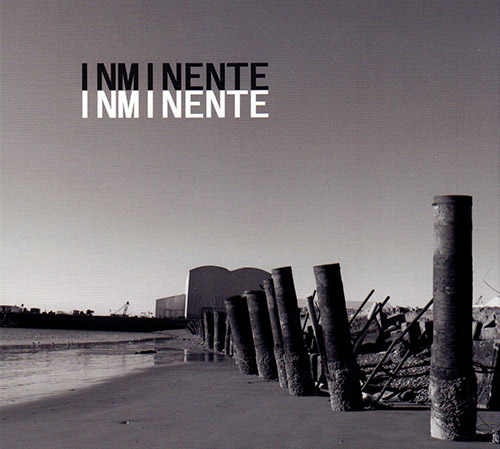

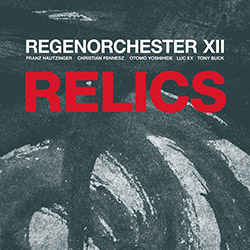
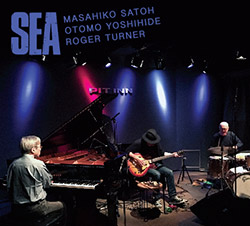
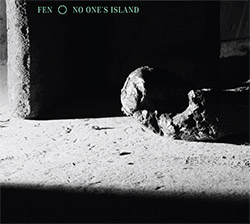
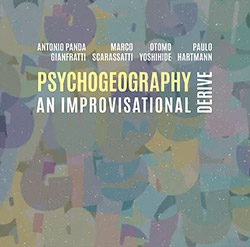


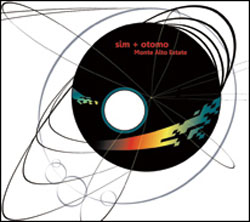

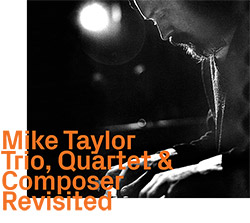
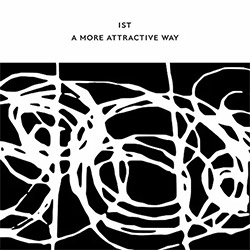

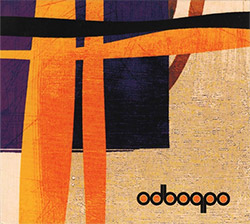

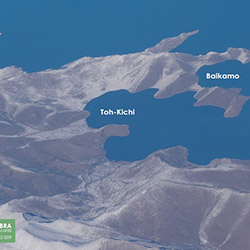
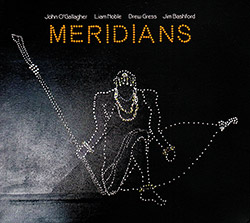


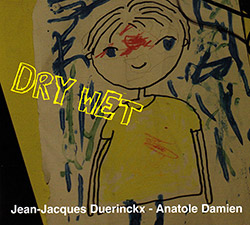
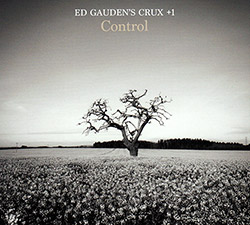

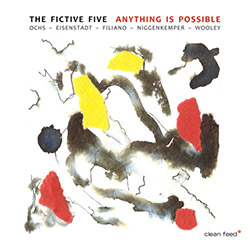
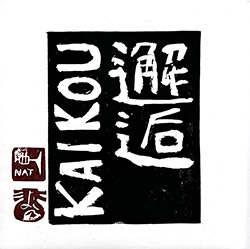

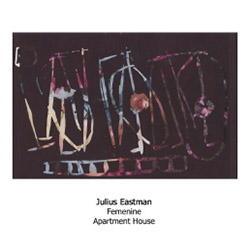
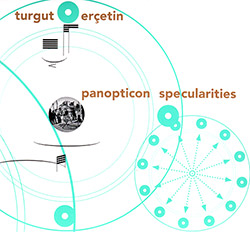


![Guy, Barry / Ken Vandermark: Occasional Poems [2 CDs]](https://www.teuthida.com/productImages/misc4/34849.jpg)
![Novoa / Carter / Mela Trio: Vol.1 [VINYL]](https://www.teuthida.com/productImages/misc4/35236.jpg)


![Elephant9 : Mythical River [VINYL]](https://www.teuthida.com/productImages/misc4/34624.jpg)
![Evans, Peter (Evans / Eldh / Black): Extra [VINYL]](https://www.teuthida.com/productImages/misc4/35279.jpg)

![McPhee, Joe: Straight Up, Without Wings [BOOK]](https://www.teuthida.com/productImages/misc4/35454.jpg)
![Jeck, Philip: rpm [2 CDs]](https://www.teuthida.com/productImages/misc4/35455.jpg)













![Barker / Parker / Irabagon: Bakunawa [VINYL]](https://www.teuthida.com/productImages/misc4/35533.jpg)
![Blaser, Samuel / Marc Ducret / Peter Bruun: Dark Was The Night, Cold Was The Ground [VINYL 10-inch]](https://www.teuthida.com/productImages/misc4/35492.jpg)








![Warren, Kenny (Warren / Hoffman / Ellman): Sweet World [VINYL]](https://www.teuthida.com/productImages/misc4/35451.jpg)




![Blake, Ran / Dave Knife Fabris: Live Amsterdam 2006, First Visit [CD + POSTCARDS]](https://www.teuthida.com/productImages/misc4/35275.jpg)













![DNS: Taking Big Bites Of The Khandas Three Cafes Deep [2 CDs]](https://www.teuthida.com/productImages/misc4/35334.jpg)




![Cleaver, Gerald: The Process [VINYL]](https://www.teuthida.com/productImages/misc4/34966.jpg)




![Alva Noto: HYbr:ID II [VINYL 2 LPs]](https://www.teuthida.com/productImages/misc4/35201.jpg)

![Baron, Derek / Luke Martin: Distinct and Concealed [CASSETTE + DOWNLOAD]](https://www.teuthida.com/productImages/misc4/35079.jpg)

![Lyle, Erica Dawn : Colonial Motels [CASSETTE + DOWNLOAD]](https://www.teuthida.com/productImages/misc4/35080.jpg)









![Sanna, Claudio: Compositori Sardi Contemporanei II [2 CDs]](https://www.teuthida.com/productImages/misc4/35317.jpg)







![Zurria, Manuel: Fame di Vento [3 CDs]](https://www.teuthida.com/productImages/misc4/35167.jpg)

![Granberg, Magnus / Nattens Inbrott / Skogen: Holde Traume, Kehret Wieder! [2 CDs]](https://www.teuthida.com/productImages/misc4/35038.jpg)
![Frey, Jurg: Outermost Melodie [2 CDs]](https://www.teuthida.com/productImages/misc4/35039.jpg)

![Pavone, Jessica: Reverse Bloom [VINYL]](https://www.teuthida.com/productImages/misc4/34895.jpg)




![Modney (Modney / Wooley / Gentile / Roberts / Pluta / Symthe / ...): Ascending Primes [2 CDs]](https://www.teuthida.com/productImages/misc4/34852.jpg)









![Elephant9 with Terje Rypdal: Catching Fire [VINYL 2 LPs]](https://www.teuthida.com/productImages/misc4/35355.jpg)
![Deerlady (Obomsawin, Mali / Magdalena Abrego): Greatest Hits [VINYL]](https://www.teuthida.com/productImages/misc4/34876.jpg)




![Haino, Keiji: Black Blues [2 CDs]](https://www.teuthida.com/productImages/misc4/35109.jpg)



![Surplus 1980: Illusion of Consistency [CD]](https://www.teuthida.com/productImages/misc4/35069.jpg)
![Staiano, Moe: Away Towards the Light [VINYL + DOWNLOAD]](https://www.teuthida.com/productImages/misc4/35037.jpg)



![Caveira (Gomes / Sousa / Abras / Ferrandini): Ficar Vivo [VINYL]](https://www.teuthida.com/productImages/misc4/34643.jpg)
![Gregg, J. J. / David Van Auken: Lunar Prairie [CD w/ DOWNLOAD]](https://www.teuthida.com/productImages/misc4/34611.jpg)

![Coultrain: Mundus [VINYL]](https://www.teuthida.com/productImages/misc4/32439.jpg)
![Mattin: Songbook #6 [VINYL]](https://www.teuthida.com/productImages/misc4/27317.jpg)
![Punkappella: Wake Up [7-inch VINYL]](https://www.teuthida.com/productImages/misc4/17519.jpg)
![Residents, The: WARNING: UNiNC.: Live And Experimental Recordings 1971-1972 [VINYL 2 LPs]](https://www.teuthida.com/productImages/misc4/31521.jpg)
![Coultrain: Phantasmagoria [VINYL]](https://www.teuthida.com/productImages/misc4/30142.jpg)
![Lennon, Sean Ono: Asterisms [VINYL]](https://www.teuthida.com/productImages/misc4/34517.jpg)

![Coley, Byron: Dating Tips for Touring Bands [VINYL]](https://www.teuthida.com/productImages/misc4/17906.jpg)

![Lost Kisses: My Life is Sad & Funny [DVD]](https://www.teuthida.com/productImages/misc4/lostKissesDVD.jpg)